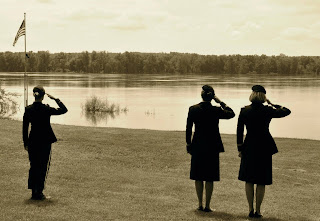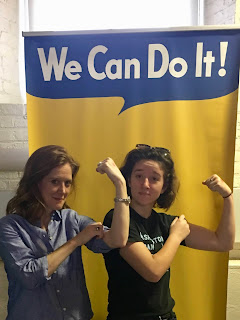MLK’s Transformational Leadership
In complete admiration for a person who in a decade and a half completely changed the world from a position of oppression, we celebrate Martin Luther King Jr. As we look at different types of leadership we can use MLK as a phenomenal case study in understanding what transformational leadership. Colonel Candid here to profess my admiration of a person who was one of the world’s most impactful non-violent leader. I’d challenge you to try and immolate his leadership style.
Application of this style begins with directly linking your ideas into action. This is extremely important when you don’t necessarily have the authority to tell people what to do but you can still achieve reform. MLK demonstrates that no problem is insurmountable by transformational leadership.
Transformational leadership has the following characteristics:
· Enthusiasm
· Vision and Values
· Lead by Example
· Change in Common Goal
· Motivation increases Effort
· Hands On
· High Expectations
· Motivation to Inspire
· Build Strong Relationships
MLK is a leader who embodies the totality of transformational leadership. MLK led by example even his legacy carries on the lesson of giving. To begin, let’s cover just a couple of actions MLK’s leadership influenced. In the 1954 Brown v. Board of Education Topeka Chief Justice Warren delivered the opinion to the court that, “segregation of white and colored children in public schools has a detrimental effect upon colored children.” Warren expanded that, a sense of inferiority affects the motivation of a child to learn. Segregation with the sanction of the law, therefore, held back the educational and mental development of minority children and deprive them of some of the benefits they would receive in a racially integrated school system. In the end, Brown v. Board of Topeka Education was a legal win but not a holistic change. Both social change and cultural shifts were slow to act.
MLK participated in the 1963 Birmingham campaign because, in his mind, that’s where injustice was. MLK’s perfectly crafted statement that “injustice anywhere is a threat to justice everywhere,” hit the mark. Remarkably, he wrote this in his writing, Letter from the Birmingham Jail. His transformational leadership provided a vision, he led by example, and his motivation truly crystalized the thinking of what could be. This change in a common goal to push forward change with the “urgency of now,” created true challenge to the status quo. His articulation to his followers motivated and inspired them to action.
Dr. King built strong relationships through his network of people who helped him make the change. By the end of the Birmingham campaign the American soul said no more. The visceral response of seeing small children get hosed down by frown men shook the consciousness of America. Transformative times needed transformational leaders. The march on Washington challenged the status quo and took a leader with enthusiasm.
MLK is the only non-president memorialized on the Mall in Washington D.C. This demonstrates his transformative nature. The continued evolution of change, even after his assassination, through his legacy. During this day, Colonel Candid asks you to ask yourself, what will continue after you? Work to make cultural change.



Comments
Post a Comment